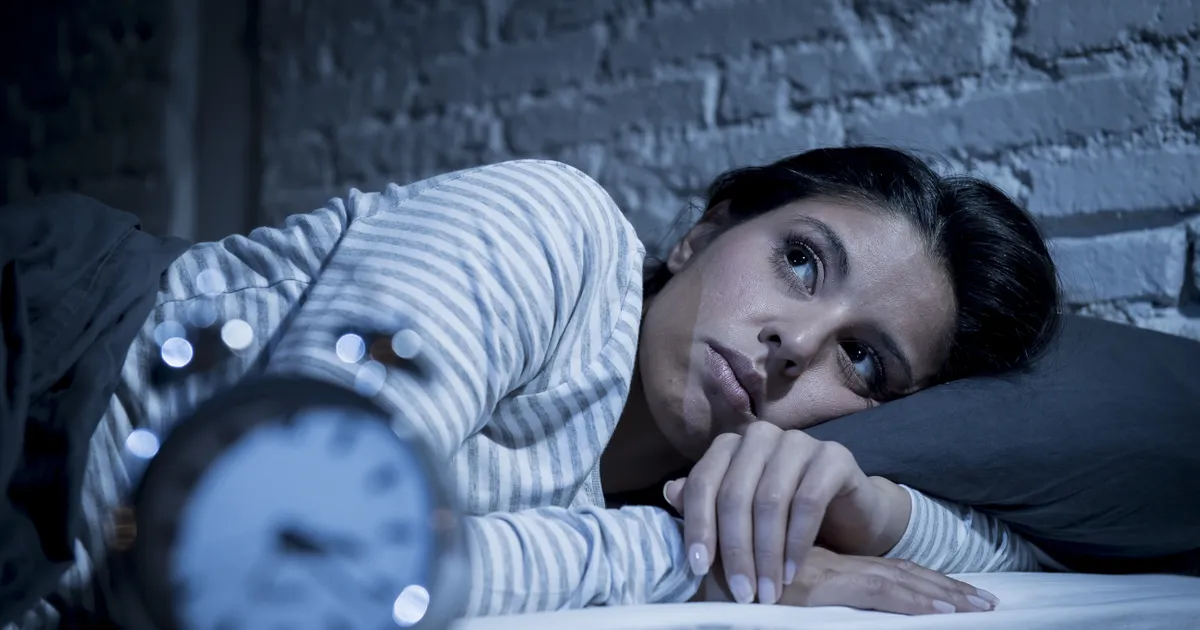Quality sleep is essential for good mental and physical health. Alas, many people struggle with getting a good night’s rest, and sleep disorders frequently go undiagnosed.
If you find yourself awake for long stretches of the night, or it takes you hours just to drift off, there are dietary, environmental, and lifestyle factors that could be responsible. Let’s take a look at the top reasons you can’t sleep – plus what you can do to change it!
 Shutterstock: Marcos Mesa Sam Wordley
Shutterstock: Marcos Mesa Sam WordleyToo Much Caffeine
You may not feel the effects of that coffee you had several hours ago, but there’s a good chance it’s contributing to your sleep issues. Since the average half-life of caffeine is 5 hours, that means one-quarter of the first dose of caffeine is still affecting your system a full 10 hours after you drink it! 1
This doesn’t mean you have to eliminate coffee, tea, and chocolate from your diet. However, it would be wise to establish a “last call” for caffeine earlier in the day, and see if your sleep improves.
Too Much Alcohol
Alcohol doesn’t have the same sleep-disturbing reputation as caffeine, but it should! Yes, having a drink or two might help you fall asleep initially, but it reduces the amount of time you spend in the critical Rapid Eye Movement (or REM) stage.
Drinking alcohol within four hours of bedtime causes insomnia-like symptoms, which increase depending on how much you consume. Low doses of alcohol have been proven to disrupt your sleep by 9.3%, while high doses can decrease the quality of your rest by 39.2%. 2
Late Snacking Or Smoking
Another dietary cause of sleepless nights could be what you’re eating. High-fat and high-protein foods take a long time for your digestive enzymes to break down, and might keep you awake. Likewise, the tyramine found in processed cheeses and cold cuts can act as a stimulant. 3
Late meals or snacking within a few hours of bedtime can also result in heartburn. Not only does heartburn make it harder to fall asleep, but lying flat encourages stomach acid to climb up your esophagus in the night. Talk about a rude awakening!
Studies show that smoking before bedtime has been proven to shorten sleep duration. Since nicotine is a stimulant, the body begins to go into withdrawal after you’ve fallen asleep, causing frequent wake-ups. 4
Late Night Exercise
Exercise has been proven to benefit sleep patterns, but a vigorous workout prior to bedtime is a recipe for insomnia. Your body will struggle to cool down – a physiological need during rest periods – and thereby delay sleep. Plus, the odds are greater that you’ll wake up dehydrated in the middle of the night.
Everyone loves having the gym to themselves, but to avoid sleep disruption, quit exercising at least 90 minutes before sleepy-time. 5
Environmental Factors
There are a number of ways your bedroom might not be conducive to getting quality sleep. If the room is too warm, it prevents your body from cooling down. A fan can solve this issue, while also supplying some white noise to help you nod off.
Your bedroom might not be dark enough, either. Exposing your eyes to light at night reduces your natural production of melatonin and tricks your brain into believing it’s time to wake up.
Too Much Screen-Time
For that reason, it should be just as obvious to avoid screen-time as it is to turn out the lights before bed. The blue light from televisions, cell phones, laptops, and tablets is just as disruptive to your sleep as natural sunlight, so stop scrolling!
Another screen you may wish to avoid is the clock. Many people who lay awake at night can’t help but watch the clock and calculate how much sleep they’re missing. All this habit accomplishes is raising your anxiety and delaying sleep even further.
Mental Health Conditions
Speaking of anxiety, sleep troubles can be a natural byproduct of mental health conditions. Fretting about professional or personal issues could become a habitual problem that keeps you awake.
If you’re struggling to sleep and also trying to manage anxiety or depression, a variety of treatments might help. Therapy, medications, and relaxation techniques (like meditation) can improve your mental health, and earn you a better night’s sleep in the process.
Sleep Disorders
Finally, if addressing your dietary, environmental, and lifestyle habits doesn’t solve the problem, you might have a sleep disorder.
Believe it or not, there are about 60 types of sleep disorder, including restless legs syndrome, sleep apnea, insomnia, and circadian rhythm disorder. 6 Many of these conditions are misdiagnosed as other ailments (like depression), so it’s a good idea to speak with your doctor about your sleep habits.


